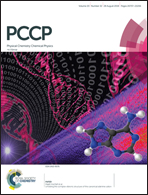Biased continuous-time random walks for ordinary and equilibrium cases: facilitation of diffusion, ergodicity breaking and ageing
Abstract
We examine renewal processes with power-law waiting time distributions (WTDs) and non-zero drift via computing analytically and by computer simulations their ensemble and time averaged spreading characteristics. All possible values of the scaling exponent α are considered for the WTD ψ(t) ∼ 1/t1+α. We treat continuous-time random walks (CTRWs) with 0 < α < 1 for which the mean waiting time diverges, and investigate the behaviour of the process for both ordinary and equilibrium CTRWs for 1 < α < 2 and α > 2. We demonstrate that in the presence of a drift CTRWs with α < 1 are ageing and non-ergodic in the sense of the non-equivalence of their ensemble and time averaged displacement characteristics in the limit of lag times much shorter than the trajectory length. In the sense of the equivalence of ensemble and time averages, CTRW processes with 1 < α < 2 are ergodic for the equilibrium and non-ergodic for the ordinary situation. Lastly, CTRW renewal processes with α > 2—both for the equilibrium and ordinary situation—are always ergodic. For the situations 1 < α < 2 and α > 2 the variance of the diffusion process, however, depends on the initial ensemble. For biased CTRWs with α > 1 we also investigate the behaviour of the ergodicity breaking parameter. In addition, we demonstrate that for biased CTRWs the Einstein relation is valid on the level of the ensemble and time averaged displacements, in the entire range of the WTD exponent α.



 Please wait while we load your content...
Please wait while we load your content...